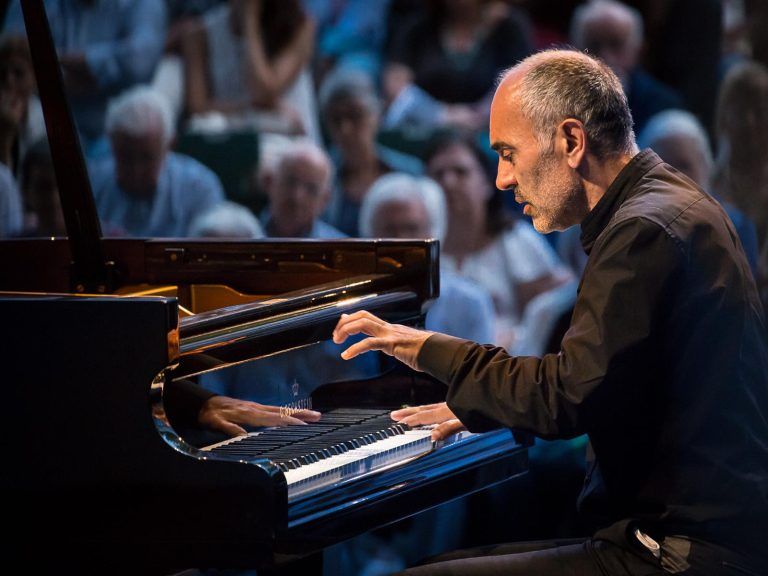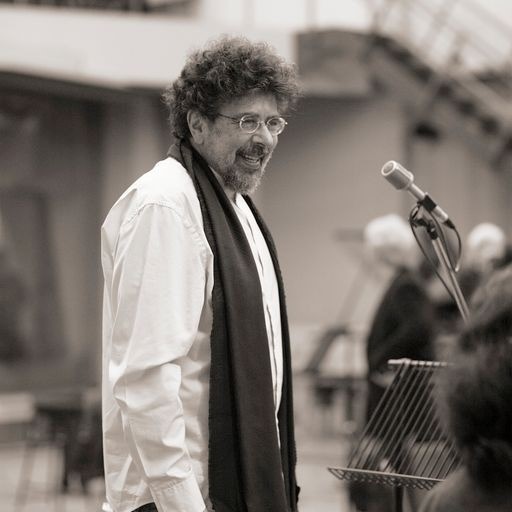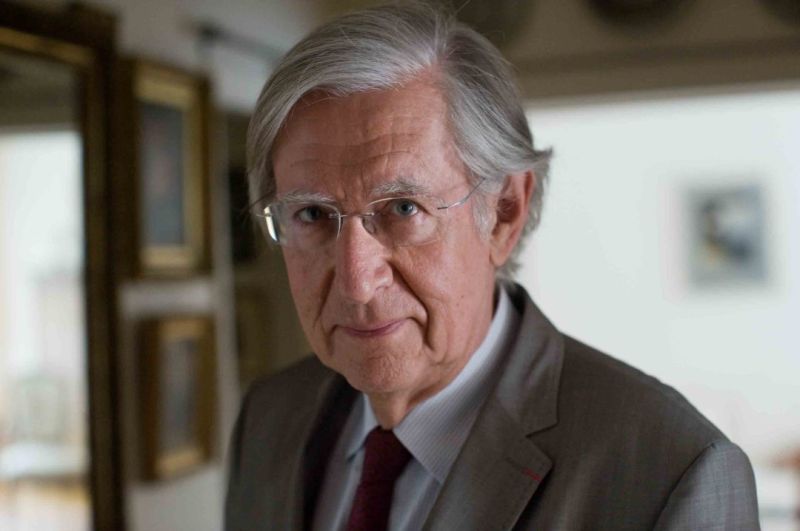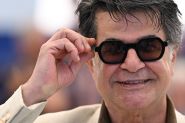
Caught in a war that tears it apart, Lebanon is far from being abandoned to its sad fate. Artists from around the globe lend their voices to This is Beirut, expressing their solidarity against unbearable violence.
The sky darkens, once again plunging Lebanon into a night devoid of promise. As the wounds of the past, much like those of the present, struggle to heal, the Israeli war machine unleashes its blind fury, ruthlessly mutilating Lebanon's battered body. Indeed, nearly a year after the onset of the war in Gaza, the recent escalation of violence between Israel and Hezbollah exacerbates a distress already palpable within Lebanon. Now beset by a deadly tragedy, the atmosphere in these fields of ruins is macabre. Even the flowers exude a scent of melancholy and anxiety. Innocent souls are swept away by a gust of brutality, like dead leaves carried by an autumn breeze.
Having never wished for this war, Lebanon finds itself trapped between two fires, serving the interests of foreign powers engaged in a bloody standoff, to the detriment of the life and future of the Lebanese people. In the face of this unspeakable brutality, death advances, gathering along its path the shattered dreams, betrayed hopes, and promises of a better future, now reduced to nothingness. However, Lebanon is far from being abandoned to its sad fate. In a surge of solidarity, artists from all corners of the world have expressed to This is Beirut their moral support for Lebanon, firmly opposing the massacre of innocents. After all, Lebanon is worth it. Why? “Because it was him; because it was me,” as Montaigne might have said.
Revolt Against Injustice
“I am outraged and saddened by the violence that my dear compatriots, Lebanese men and women of all ages, are enduring; this small country, great in its spiritual value, has shaped me and allowed me to be who I am: a musician who bears witness to our country’s cultural heritage and human richness,” declares Abdel Rahman el-Bacha from his residence in Brussels. Winner of the prestigious Queen Elizabeth Music Competition in Belgium in June 1978, he is renowned for his technical mastery and sensitive interpretation of the great piano repertoire, including works by Beethoven, Chopin, Ravel, and Prokofiev. “No bomb can destroy what Lebanon represents in the world,” asserts the Lebanese-French musician, speaking with the tone of one who refuses to succumb to despair, before concluding, “And it is with this Lebanese sensitivity that I play the works of Beethoven and Chopin, who have beautifully expressed the revolt that all humans should feel against injustice.”
 Abdel Rahman el-Bacha. (Right reserved)
Abdel Rahman el-Bacha. (Right reserved)
To Those Who Suffer...
Moved by the tragedy devastating his homeland, Gabriel Yared expresses his deep solidarity with those suffering in these difficult times: “Once again, bombs are striking Lebanon. In the face of this new tragedy affecting my homeland, I want to express my deep sorrow and heartfelt solidarity with my friends and the Lebanese people.” He adds, “I think of those who have lost loved ones, of those who have had to flee, of all those who are suffering.” A composer of film music, Gabriel Yared has received numerous awards throughout his career, including the César for Best Film Music in 1993 for L'Amant, followed by the Oscar for Best Film Music in 1997 for The English Patient. Out of sight, but never out of heart, he hinted during his visit to Lebanon in September 2023, amidst a gathering organized by Beit Tabaris. It was to This is Beirut that he revealed this confidence, a visceral bond that forever ties him to this land. “With all my heart, I send my warmest thoughts, hoping for better days for Lebanon and the Middle East,” he concludes, visibly shaken.
 Gabriel Yared. (Right reserved)
Gabriel Yared. (Right reserved)
Sincere Solidarity
Considered one of the most eminent Soviet (later Russian) pianists of his time, Victor Bunin has traveled the world, sowing the seeds of his art among new generations of pianists. Yet, Lebanon holds a special place in his heart. He returns time and again, eager to impart his passion and inspire musicians. From his home in Russia, he sends a message filled with compassion to the Lebanon he cherishes: “My family and I are deeply touched by the tragic situation in Lebanon. We have many friends in Beirut, and we are extremely worried for their safety,” confides Victor Bunin, his heart heavy with concern. Now 88 years old, Bunin achieved fame after winning first prize at the All-Russian Piano Competition in 1961, a success that immediately propelled him onto the grand musical stages. “We express our sincere solidarity with Lebanon and pray for the end of the military escalation,” he concludes.
 Victor Bunin. (Right reserved)
Victor Bunin. (Right reserved)
Silence of Weapons
A distinguished musicologist and lecturer, Gilles Cantagrel has established himself as a leading expert on Johann Sebastian Bach and his era. His research, analyses, and reflections have enriched our understanding of Western art music over more than half a century. But beyond his many accolades, Gilles Cantagrel is also a great friend of Lebanon. “Dear Lebanese friends, you who come from a country of high culture, you who cherish this culture as a treasure that is part of your history, you who suffer to see it martyred, you must absolutely preserve your traditional values,” writes the former director of France Musique, guided by the wisdom accumulated over his 86 years. Vice president of the music commission of the European Broadcasting Union in 1992, former administrator of the Centre de musique baroque de Versailles, and member of the supervisory board of the Bach Foundation in Leipzig, his titles honor a man who has inscribed himself into history during his lifetime.
“From my country and your friends in France, I fervently wish for the silence of weapons and peace in hearts. You are a country of peace; you have nothing that could warrant such hatred and ruin,” the musicologist continues in an emotionally charged letter. “May the bombs cease to destroy you! May you regain your values!” His last desire: “Live in peace!!!”
 Gilles Cantagrel. Photo Credit: Didier Goupy
Gilles Cantagrel. Photo Credit: Didier Goupy
Ideal of Brotherhood
“The description you provide of what the Lebanese have been enduring for some time has horrified me, amplifying the strong emotion I already felt reading the news,” Bernard Fournier emphasizes at the outset. A musicologist, author, and lecturer, he is among the foremost international experts on Beethoven’s works and string quartets. His writings have been recognized with prestigious awards, including the Coup de cœur from the Académie Charles Cros, the Prize from the Professional Criticism Syndicate, the Catenacci Prize from the Academy of Fine Arts, and the Muses Prize for the best history of music book. “I am all the more touched because, in my youth, Lebanon was a model country for the whole world in allowing diverse populations of different origins, cultures, and religions to coexist in harmony,” recalls the octogenarian expert. A true symbol of openness and tolerance, this small country had served as a poignant message of peace for the world, as even Pope John Paul II stated.
“In our world, shaken from one end to the other by conflicts and violence, we can only long for our former Lebanon, which upheld the beautiful ideal of brotherhood and thus fulfilled Beethoven’s wish, musically expressed in the final of his Ninth Symphony: Alle Menschen werden Brüder (all men will become brothers). Let us keep this hope and this objective,” Bernard Fournier says with the profound sincerity of a true Lebanese at heart. With deep empathy for the unacceptable, he turns to those who suffer and states, “For now, believe in my compassion for your moral suffering and in my solidarity with the Lebanese people. Nothing will ever justify the death of innocents.”
 Bernard Fournier. (Right reserved)
Bernard Fournier. (Right reserved)
The sky darkens, once again plunging Lebanon into a night devoid of promise. As the wounds of the past, much like those of the present, struggle to heal, the Israeli war machine unleashes its blind fury, ruthlessly mutilating Lebanon's battered body. Indeed, nearly a year after the onset of the war in Gaza, the recent escalation of violence between Israel and Hezbollah exacerbates a distress already palpable within Lebanon. Now beset by a deadly tragedy, the atmosphere in these fields of ruins is macabre. Even the flowers exude a scent of melancholy and anxiety. Innocent souls are swept away by a gust of brutality, like dead leaves carried by an autumn breeze.
Having never wished for this war, Lebanon finds itself trapped between two fires, serving the interests of foreign powers engaged in a bloody standoff, to the detriment of the life and future of the Lebanese people. In the face of this unspeakable brutality, death advances, gathering along its path the shattered dreams, betrayed hopes, and promises of a better future, now reduced to nothingness. However, Lebanon is far from being abandoned to its sad fate. In a surge of solidarity, artists from all corners of the world have expressed to This is Beirut their moral support for Lebanon, firmly opposing the massacre of innocents. After all, Lebanon is worth it. Why? “Because it was him; because it was me,” as Montaigne might have said.
Revolt Against Injustice
“I am outraged and saddened by the violence that my dear compatriots, Lebanese men and women of all ages, are enduring; this small country, great in its spiritual value, has shaped me and allowed me to be who I am: a musician who bears witness to our country’s cultural heritage and human richness,” declares Abdel Rahman el-Bacha from his residence in Brussels. Winner of the prestigious Queen Elizabeth Music Competition in Belgium in June 1978, he is renowned for his technical mastery and sensitive interpretation of the great piano repertoire, including works by Beethoven, Chopin, Ravel, and Prokofiev. “No bomb can destroy what Lebanon represents in the world,” asserts the Lebanese-French musician, speaking with the tone of one who refuses to succumb to despair, before concluding, “And it is with this Lebanese sensitivity that I play the works of Beethoven and Chopin, who have beautifully expressed the revolt that all humans should feel against injustice.”
 Abdel Rahman el-Bacha. (Right reserved)
Abdel Rahman el-Bacha. (Right reserved)To Those Who Suffer...
Moved by the tragedy devastating his homeland, Gabriel Yared expresses his deep solidarity with those suffering in these difficult times: “Once again, bombs are striking Lebanon. In the face of this new tragedy affecting my homeland, I want to express my deep sorrow and heartfelt solidarity with my friends and the Lebanese people.” He adds, “I think of those who have lost loved ones, of those who have had to flee, of all those who are suffering.” A composer of film music, Gabriel Yared has received numerous awards throughout his career, including the César for Best Film Music in 1993 for L'Amant, followed by the Oscar for Best Film Music in 1997 for The English Patient. Out of sight, but never out of heart, he hinted during his visit to Lebanon in September 2023, amidst a gathering organized by Beit Tabaris. It was to This is Beirut that he revealed this confidence, a visceral bond that forever ties him to this land. “With all my heart, I send my warmest thoughts, hoping for better days for Lebanon and the Middle East,” he concludes, visibly shaken.
 Gabriel Yared. (Right reserved)
Gabriel Yared. (Right reserved)Sincere Solidarity
Considered one of the most eminent Soviet (later Russian) pianists of his time, Victor Bunin has traveled the world, sowing the seeds of his art among new generations of pianists. Yet, Lebanon holds a special place in his heart. He returns time and again, eager to impart his passion and inspire musicians. From his home in Russia, he sends a message filled with compassion to the Lebanon he cherishes: “My family and I are deeply touched by the tragic situation in Lebanon. We have many friends in Beirut, and we are extremely worried for their safety,” confides Victor Bunin, his heart heavy with concern. Now 88 years old, Bunin achieved fame after winning first prize at the All-Russian Piano Competition in 1961, a success that immediately propelled him onto the grand musical stages. “We express our sincere solidarity with Lebanon and pray for the end of the military escalation,” he concludes.
 Victor Bunin. (Right reserved)
Victor Bunin. (Right reserved)Silence of Weapons
A distinguished musicologist and lecturer, Gilles Cantagrel has established himself as a leading expert on Johann Sebastian Bach and his era. His research, analyses, and reflections have enriched our understanding of Western art music over more than half a century. But beyond his many accolades, Gilles Cantagrel is also a great friend of Lebanon. “Dear Lebanese friends, you who come from a country of high culture, you who cherish this culture as a treasure that is part of your history, you who suffer to see it martyred, you must absolutely preserve your traditional values,” writes the former director of France Musique, guided by the wisdom accumulated over his 86 years. Vice president of the music commission of the European Broadcasting Union in 1992, former administrator of the Centre de musique baroque de Versailles, and member of the supervisory board of the Bach Foundation in Leipzig, his titles honor a man who has inscribed himself into history during his lifetime.
“From my country and your friends in France, I fervently wish for the silence of weapons and peace in hearts. You are a country of peace; you have nothing that could warrant such hatred and ruin,” the musicologist continues in an emotionally charged letter. “May the bombs cease to destroy you! May you regain your values!” His last desire: “Live in peace!!!”
 Gilles Cantagrel. Photo Credit: Didier Goupy
Gilles Cantagrel. Photo Credit: Didier GoupyIdeal of Brotherhood
“The description you provide of what the Lebanese have been enduring for some time has horrified me, amplifying the strong emotion I already felt reading the news,” Bernard Fournier emphasizes at the outset. A musicologist, author, and lecturer, he is among the foremost international experts on Beethoven’s works and string quartets. His writings have been recognized with prestigious awards, including the Coup de cœur from the Académie Charles Cros, the Prize from the Professional Criticism Syndicate, the Catenacci Prize from the Academy of Fine Arts, and the Muses Prize for the best history of music book. “I am all the more touched because, in my youth, Lebanon was a model country for the whole world in allowing diverse populations of different origins, cultures, and religions to coexist in harmony,” recalls the octogenarian expert. A true symbol of openness and tolerance, this small country had served as a poignant message of peace for the world, as even Pope John Paul II stated.
“In our world, shaken from one end to the other by conflicts and violence, we can only long for our former Lebanon, which upheld the beautiful ideal of brotherhood and thus fulfilled Beethoven’s wish, musically expressed in the final of his Ninth Symphony: Alle Menschen werden Brüder (all men will become brothers). Let us keep this hope and this objective,” Bernard Fournier says with the profound sincerity of a true Lebanese at heart. With deep empathy for the unacceptable, he turns to those who suffer and states, “For now, believe in my compassion for your moral suffering and in my solidarity with the Lebanese people. Nothing will ever justify the death of innocents.”
 Bernard Fournier. (Right reserved)
Bernard Fournier. (Right reserved)
Read more




Comments